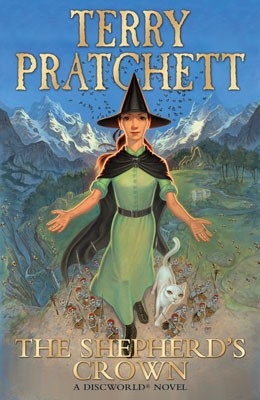Edmund Jenkin was not an old man but he was weary and
reaching the end of his resources. He
had been waiting for his caller who was overdue by an hour and he was
worried. The weather was bad but that
was not what concerned him. What
concerned him was that the time was bad, the days were bad, the enemy was
breaking through in ways they could not have imagined a decade ago and he was
concerned that these were the final days.
When he saw Jacob’s car draw up in his driveway he was not
so much relieved as resigned. There was
still work to be done. When he opened
the door to his visitor though he shook his head.
“You should not have brought the boy,” he said to
Jacob. The child was about ten years
old and seemed hidden inside a hooded coat at least one size too large, playing
some game on a smartphone that was occupying his full attention.
“No choice Ed,” said Jacob, “His mother’s busy, I couldn’t leave him behind.” The two visitors entered the house and
Edmund disposed of their coats over a couple of hooks in the hallway.
“What’s your name then?” asked Edward of the child, smiling
awkwardly.
“Simon,” said the boy, “What’s your wifi password?”
“Wi…? I don’t think
I have one.”
The boy’s father laughed at Simon’s horrified expression and
installed him in the parlour while the two men went into Edmund’s study, a
cluttered room of books and folders and strange drawings pinned to the
wall. Jacob recognised some of the things
in the drawings and they made him feel ill.
“It’s getting worse isn’t it?” he said.
“Much worse. The
stars are right and the old ones are stirring in their strange homes. Their followers are awaiting their
return. Already there are manifestations.”
Jacob nodded, running his fingers over a pinned up pencil
sketch of a formless bundle of ropy sinew.
“There was a shoggoth in the Humber Estuary,” he said very quietly, “we
drove it off but it killed Elaine.
Marcus hasn’t spoken since then.
I think he’ll do something… rash… if he’s left alone. That’s why Sarah’s not here today, she’s
watching him.”
Edmund shook his head sadly. “I heard of that. The television said it was a chemical
spill. And the incursion in Fiswick?”
“They took a dozen of the citizens, nothing we could
do. Dragged them under the waves. Edmund… how are they doing it? They’ve never been able to accomplish so
much before.”
“The stars are right,” Edmund said. He opened up a book on his desk, a very old
book with brown and cracking pages.
Jacob knew the name of the book but wouldn’t ever say it aloud, its
reputation was so bad. The page
displayed was covered in spidery symbols, pen-strokes of dark ink that almost
writhed under the reader’s gaze. “But
even so… the simplest conjuration takes such concentration, such precision.” He instinctively tried to trace one of the
symbols with his finger in the air and stopped himself, clenching his fist
angrily.
“We need to find a way to…”
Jacob sighed, “I’m stating the obvious.
What isn’t obvious is how to stop them.
But until we find their rituals, find out where they’re doing the summoning
from we’re always going to be on the defensive.” He picked up a copy of the Daily Mail, the
headline CANNIBAL IMMIGRANT RAMPAGE showed a blurry image of what were plainly –
to those in the know at least – two ghouls tearing into the crowd after a
London football match. “How did they
get so bold? How did they get so much
better?”
“People believe everything and nothing these days,” Edmund
said sadly, “the occult is a joke to so many.
They do not understand how the edge of the abyss can crumble so quickly,
how deep is the fall that awaits us all.
If only we-“ He stopped suddenly
and looked around. The lights flickered
off and then on again a few seconds later and the walls of the house seemed to
groan. The renewed light was wrong
somehow, a greenish cast to it, the shadows fell wrongly, drawing inward toward
the centre of the room.
“They’ve found us,” Edmund said, his mouth dry with
fear. He fumbled with one hand at the
talisman he kept in his waistcoat pocket, a silver square engraved with
number-squares that should be proof against the chaotic forces they too-often
faced. The silver felt slimy to the touch,
sticking to his fingers. “My God they’ve
found us.”
Jacob ran from the room to fetch his son. Whatever danger they had to face they would
face together and he could not risk them using his child against him. The corridor had twisted like a corkscrew
along its length though it looked no different and as Jacob tried to run down
it he fell from floor to wall to ceiling bruising himself and having the breath
knocked out of him.
“Simon!” he yelled at the parlour door, “Simon are you alright?” His words burned like ochre light in the air
around him as he called. The
answering cry was petulant.
“Just finishing the level,”
in a tone that meant ‘do not disturb me’
Jacob crawled to the door across a carpet that tore at him
like shards of broken promises and he thrust the door open. Simon was safe though the room around him had
become a twisted mosaic of its original form.
The boy hadn’t even looked up from his game and Jacob lurched forward to
grab his son, to save him, to take him back to Edmund who was the most skilled
exponent of the arcane arts he had ever met and who might be able to protect
them all. A scream the colour of
corroded dreams echoed out from the study giving the lie to that hope.
“Dad, leave it, I’m nearly done,” The boy was unaware of any risk, his finger
moving rapidly over the smartphone screen, and Jacob looked at the game for the
first time, really looked. Each time a
shimmering green symbol appeared on the screen the boy traced it almost at once
with his finger, and then the next, and then the next and the next, the speed
incredible, the accuracy such that only a child with a favourite game could
achieve.
Jacob recognised the symbols, but he could not stop the
child at his game. He did not have time. The walls of the room opened inward like slatted blinds, noiseless and inevitable, and the things beyond the world looked in
hungrily and took them both.











